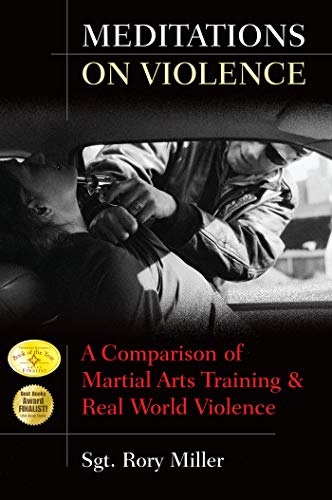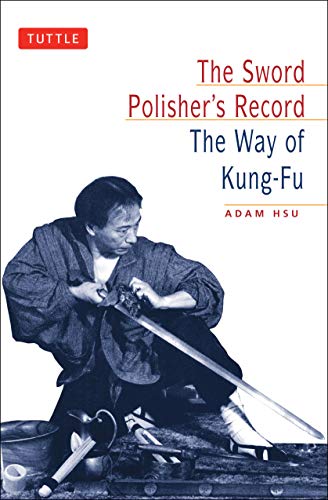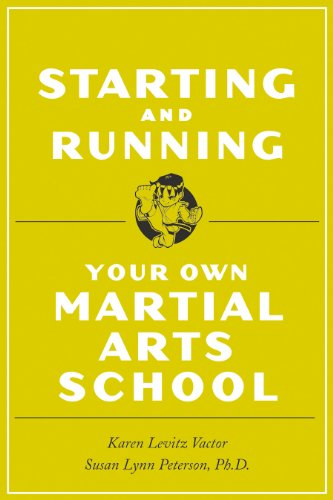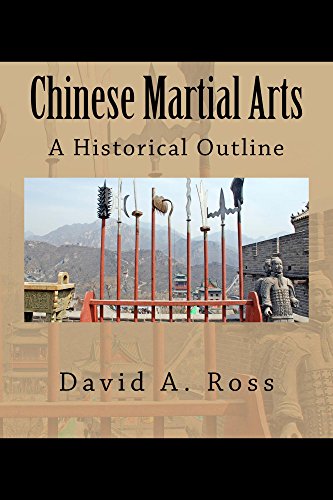Top products from r/kungfu
We found 26 product mentions on r/kungfu. We ranked the 65 resulting products by number of redditors who mentioned them. Here are the top 20.
2. Chinese Martial Arts Training Manuals: A Historical Survey
Sentiment score: 1
Number of reviews: 2
Blue Snake Books
 Show Reddit reviews
Show Reddit reviews3. Meditations on Violence: A Comparison of Martial Arts Training and Real World Violence
Sentiment score: -2
Number of reviews: 2
YMAA Publication Center
 Show Reddit reviews
Show Reddit reviews4. Chinese Martial Arts: From Antiquity to the Twenty-First Century
Sentiment score: 2
Number of reviews: 2
 Show Reddit reviews
Show Reddit reviews5. The Sword Polisher's Record: The Way of Kung-Fu (Tuttle Martial Arts)
Sentiment score: 1
Number of reviews: 1
 Show Reddit reviews
Show Reddit reviews6. Mastering the Art of War: Zhuge Liang's and Liu Ji's Commentaries on the Classic by Sun Tzu (Shambhala Dragon Editions)
Sentiment score: 1
Number of reviews: 1
 Show Reddit reviews
Show Reddit reviews7. Principles, Analysis, and Application of Effortless Combat Throws
Sentiment score: 1
Number of reviews: 1
Used Book in Good Condition
 Show Reddit reviews
Show Reddit reviews8. Miyamoto Musashi: His Life and Writings
Sentiment score: 1
Number of reviews: 1
Used Book in Good Condition
 Show Reddit reviews
Show Reddit reviews9. The Shaolin Monastery: History, Religion, and the Chinese Martial Arts
Sentiment score: 1
Number of reviews: 1
 Show Reddit reviews
Show Reddit reviews10. One Hundred Unorthodox Strategies: Battle And Tactics Of Chinese Warfare
Sentiment score: 1
Number of reviews: 1
 Show Reddit reviews
Show Reddit reviews11. Starting and Running Your Own Martial Arts School
Sentiment score: 2
Number of reviews: 1
Used Book in Good Condition
 Show Reddit reviews
Show Reddit reviews12. Moving Toward Stillness: Lessons in Daily Life from the Martial Ways of Japan
Sentiment score: 1
Number of reviews: 1
 Show Reddit reviews
Show Reddit reviews13. Stealing Fire: How Silicon Valley, the Navy SEALs, and Maverick Scientists Are Revolutionizing the Way We Live and Work
Sentiment score: 0
Number of reviews: 1
Dey Street Books
 Show Reddit reviews
Show Reddit reviews14. Chinese Martial Arts: A Historical Outline
Sentiment score: 0
Number of reviews: 1
 Show Reddit reviews
Show Reddit reviews15. Peace Is Every Step: The Path of Mindfulness in Everyday Life
Sentiment score: 1
Number of reviews: 1
peace moment zen master spiritual leader positive true selves mindfulness present
 Show Reddit reviews
Show Reddit reviews16. You Are What You Eat: The Plan That Will Change Your Life
Sentiment score: 1
Number of reviews: 1
 Show Reddit reviews
Show Reddit reviews17. The Gift of Fear and Other Survival Signals that Protect Us From Violence
Sentiment score: -1
Number of reviews: 1
Dell Publishing Company
 Show Reddit reviews
Show Reddit reviews



https://en.wikipedia.org/wiki/Four_Great_Classical_Novels
These are great reads, particularly Romance of the Three Kingdoms and the Water Margin. There is a modern martial arts film called Chi Bi, or Red Cliff that you might have heard about that is based on RotTK. That book is about 2,000 pages long, but there is an abridged 500 page one that is pretty good. One of the characters in that book, Zhuge Liang, also known as Konming, is one of the best military strategists who has ever lived. He wrote a commentary based on the book The Art of War, which a lot of martial artists read.
You should definitely check out The Art of War by Sun Tzu and
Mastering the Art of War by Zhuge Liang http://www.amazon.com/Mastering-Art-Shambhala-Dragon-Editions/dp/0877735131
Another good book is 100 Unorthodox strategies http://www.amazon.com/One-Hundred-Unorthodox-Strategies-Tactics/dp/0813328616/
It contains many stories about famous battles in ancient China and how various warlords tricked or outmaneuvered others in battle in very creative ways.
There is also a series of comic books translated from the Chinese that deliver certain ancient texts or biographies of ancient China in a great format http://www.amazon.com/Confucius-Speaks-Tsai-Chih-Chung/dp/0385480342
The author is Tsai Chih Chung and he has written over 100 of these books.
The literature of ancient China is useful because it was highly influential on Chinese and indirectly Japanese martial arts. Principles of Taoism, Confucianism and Buddhism can be found in martial arts philosophy.
Some books, like the 4 classics I mentioned above, were so widely written that there are huge elements found in every aspect of the modern day. Romance of the Three Kingdoms is sort of how the English view Robbin Hood and King Arthur. It basically defines their culture. The glaring example of how Journey to the West has modern influence is that the popular Japanese Anime Dragon Ball Z is loosely based on a Japanese version of the same story.
Water Margin is notable because certain forms of kung fu described in that book are still practiced today like Poking Foot Kung Fu also known as Water Margin Bandit Style https://www.youtube.com/watch?v=gq8GIdVumFo
As you said, different people consider different nutritional choices to be healthy, and I don't place any particular extra value on Bruce Lee's opinion. His name gets dropped and people think the conversation is over because no one is allowed to question anything he ever said or did, but I take his teachings with a big old grain of salt. Don't get me wrong, he was good, and I appreciate all he did to bring Kung Fu to the mainstream, but he was a very young master, and I think many of his philosophies would have changed significantly had his life not been cut so tragically short. Yes, he was into healthy eating and raw food, but he was also into eliminating forms entirely from his style's curriculum, which is something that does not jive with me even a little.
So anyway, if you're curious about what other people eat, here you go. I am in excellent physical shape in regards to both Kung Fu and my physical health. I don't abide by any particular diet plan, but I try to follow the patterns described in this book. I try to avoid heavily processed food and almost never eat junk food. I never eat fast food and never drink soda (I drink seltzer instead.) I try to eat organic food as often as possible, and, as I feel part of being a martial artist is also being a good citizen, I try to buy locally to support my community, which admittedly can be difficult.
I eat almost the exact same thing every day, at least during the week when I'm working. Breakfast is either cereal or oatmeal, or if I'm feeling really fancy/have the time, eggs or pancakes. I'll have a fruit for a snack later in the morning, usually an apple. For lunch I almost always have a sandwich, which several slices of meat and ton of veggies; lettuce, tomato, onion, pickles, avocado. I'll have a veggie for a snack later in the day, usually celery, then right before I leave work I'll have a yogurt. I will only eat dinner if I have time, which is only two or three nights per week. In the interest of money it's usually something simple like pasta, but I will occasionally cook a healthier dinner with meat and vegetables. I also cheat being healthy occasionally and have something naughty like ice cream or peanut butter and Nutella on toast. I exercise every day; I practice Kung Fu 4 days a week and work out at the gym the other 3, and sometimes to help with that I will drink a protein shake (usually Sigma 6) once per day, but that stuff is REALLY expensive, so those benders usually don't last long.
There is some variation, especially on weekends, but for the most part, that's how I roll. I hope you find this helpful.
i feel dumb at posting this for the thousandth time, but apparently people are too busy to scroll through previous posts.
"Chinese Martial Arts - From antiquity to the twenty-first century", Peter Lorge, Cambridge University Press
Or, click on the following link: https://www.amazon.com/Chinese-Martial-Arts-Antiquity-Twenty-First/dp/0521878810
This is an extremely good starting point. As a general advice, thinking in terms of styles that are currently practiced won't get you very far. But good luck anyway.
Some books:
Fairly sure that Qi Magazine can now be accessed online for free, and the Journal of Baguazhang.
Jonathan Bluestein put together Research of the Martial Arts a few years ago, which looks pretty interesting:
https://www.amazon.com/Research-Martial-Jonathan-Bluestein-Shifu/dp/1499122519/
Tim doing Ba Gua's version of push hands
There are some clips of Tim sparring and competing in the beginning and end of this vid
Tim has been around the chinese internal arts and bjj scene for quite a while. He's known for combining the two. Using internal arts for stand up grappling (he has a fairly well known book on the subject) and bjj for ground work. Here's the episode of Rolled Up with Tim. You might find it interesting.
One good book that might help give you some perspective:
Chinese Martial Arts Training Manuals: A Historical Survey
by Brian Kennedy
A website with information that is slightly more scholarly than your typical kung fu "history" website:
Taiping Institute of Traditional Chinese Martial Arts
I do a lot of research into various styles and lineages that existed before and up to the time period you're talking about. PM me if you want to chat, and I can possibly lead you to some other good resources.
this might be of interest to you
http://www.evolveandascend.com/2017/06/19/the-martial-arts-and-magic-mushrooms-connection/
also
http://www.alternet.org/drugs/hidden-psychedelic-history-martial-arts
this too
https://www.amazon.com/gp/aw/d/0062429655/ref=mp_s_a_1_1?ie=UTF8&qid=1504291730&sr=8-1&pi=AC_SX236_SY340_FMwebp_QL65&keywords=stealing+fire&dpPl=1&dpID=51MMkc9ZN7L&ref=plSrch
If literary sources are available and you're interested enough to spend a few bucks on it, there's quite a bit of stuff available. In case you haven't already done so, consider changing "kung fu" to "Chinese martial arts" in your search queries. For example, I just did search that on Amazon Kindle store, and this book (which, admitted, I haven't read but probably will buy...) is five bucks on Kindle.
For internal arts, see Brennan Translation, but however cite the original sources with a note "translated by Paul Brennan".
Self defense is another hornet's nest, where everyone seems to have a different opinion on what "self defense" entails. Is it being able to beat someone in a straight-up 1-on-1 fight? Is it simply being able to do enough damage to escape? Does it entail multiple attackers? Is it being able to fight yourself out of any and all situations? Or is it the ability to simply run as fast as you can? Browse /r/martialarts any day of the week and chances are you'll see a thread arguing about what constitutes "self defense."
If your focus is solely on the idea of self defense, I would highly recommend two books: The Gift of Fear, which talks about recognizing situations and signals that a situation is going to turn bad, and Meditations on Violence, which talks about the different kinds of violence and how martial arts training fares in real-life situations. Both are excellent reads and extremely enlightening.
Peaceful Warrior is a book about a college student who meets a master and learns the philosophical side of Kung Fu.
I have not yet read Scholar Warrior yet but its a book about applying Kung Fu to everyday life.
Here is good book on Chinese acupuncture, which is a very useful skill that can be used to either hurt or heal another person
Anything close to a real fight or sparring, I feel calm and focused, but good lord would I feel anxious in any kind of arena with a large audience.
Depending on the situation in a more real-world scenario, I either go fight or freeze. The potentially violent situations I've come across don't tend to trigger a huge amount of fear, not because I'm brave or anything, just because (a) I've never been in any very serious violent situations, and (b) I think I've spent too long thinking about fighting as a point of interest that it doesn't really initially occur to me emotionally that getting into a fight would be bad. I generally associate it positively.
I've come close to being mugged twice. I know that's a strange thing to claim, but once I was cutting through this dark and foggy park and saw someone on my left start approaching me in a suspicious manner, while someone else walked toward me from my right and a little behind me, both speed walking. There was no one else in the park. The second time was in a parking lot, but it was years ago and I've forgotten the details. The guy approached me, dead of night, completely empty parking lot, started asking me weird questions, seemed kind of nervous. Admittedly, I might have been just being paranoid in these situations, but I definitely have my suspicions. I've broken up a couple fights too. I've been fortunate enough to escape any real encounters so far.
In my experience though, instructors don't really address the topic of violence very well, myself included. I can't really recommend Rory Miller's book, Meditations on Violence strongly enough for anyone interested in the topic of violence and strategies for dealing with it. I would put in the caveat, as he has, that of course there are many different kinds of violence (domestic, military, etc.) that each need to be addressed with a unique view, but I'm not sure how else to phrase my recommendation here. Anyway, this should be required reading for anyone pursuing martial arts in any discipline, in my opinion. Anything I had to say on this topic outside of my personal experiences would likely just be a reworking of what I've read here.